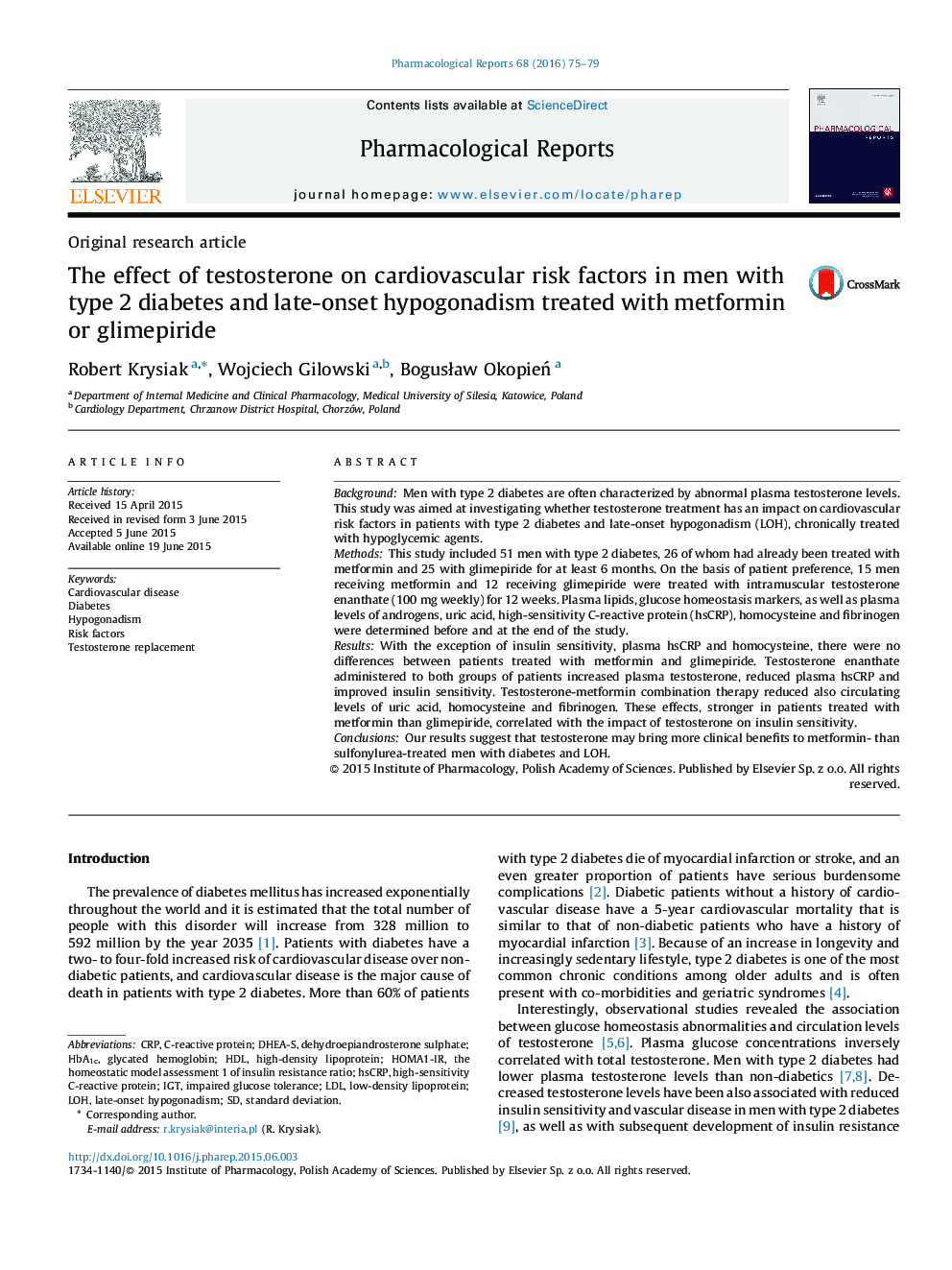| Article ID | Journal | Published Year | Pages | File Type |
|---|---|---|---|---|
| 2010403 | Pharmacological Reports | 2016 | 5 Pages |
BackgroundMen with type 2 diabetes are often characterized by abnormal plasma testosterone levels. This study was aimed at investigating whether testosterone treatment has an impact on cardiovascular risk factors in patients with type 2 diabetes and late-onset hypogonadism (LOH), chronically treated with hypoglycemic agents.MethodsThis study included 51 men with type 2 diabetes, 26 of whom had already been treated with metformin and 25 with glimepiride for at least 6 months. On the basis of patient preference, 15 men receiving metformin and 12 receiving glimepiride were treated with intramuscular testosterone enanthate (100 mg weekly) for 12 weeks. Plasma lipids, glucose homeostasis markers, as well as plasma levels of androgens, uric acid, high-sensitivity C-reactive protein (hsCRP), homocysteine and fibrinogen were determined before and at the end of the study.ResultsWith the exception of insulin sensitivity, plasma hsCRP and homocysteine, there were no differences between patients treated with metformin and glimepiride. Testosterone enanthate administered to both groups of patients increased plasma testosterone, reduced plasma hsCRP and improved insulin sensitivity. Testosterone-metformin combination therapy reduced also circulating levels of uric acid, homocysteine and fibrinogen. These effects, stronger in patients treated with metformin than glimepiride, correlated with the impact of testosterone on insulin sensitivity.ConclusionsOur results suggest that testosterone may bring more clinical benefits to metformin- than sulfonylurea-treated men with diabetes and LOH.
